Are you using multiple Gmail accounts for separate projects but don’t want to miss any email as it comes in?
With Gmail, you can easily connect multiple accounts and email addresses with its native features. No add-ons or paid plugins necessary.
It’s the perfect solution if you have aliases (like a published author), or you want an assistant to handle urgent emails while focusing on work that matters.
Gmail alone makes up 26% of all emails sent on the internet, so there’s a good chance anyone you’re working with already has an account. Plus, for companies, there’s an even easier solution in Google Workspace.
In this article, we’ll show you exactly how to manage multiple Gmail accounts from a single inbox.
Prefer to watch the video?
How Do I Have Multiple Gmail Accounts in One Inbox?
If you’re wondering how to have multiple Gmail accounts in one inbox, it’s easy, and you can use the built-in features of Gmail to set it up in a few steps.
Just follow along.
1. Send a Request to Your Second Account in the Gmail Settings
Start by navigating to the accounts menu in the settings (you need to go to the All Settings section to do this).
Note: Make sure you start from your primary Gmail account before you follow any more instructions.

Then switch to the Accounts and Import tab.
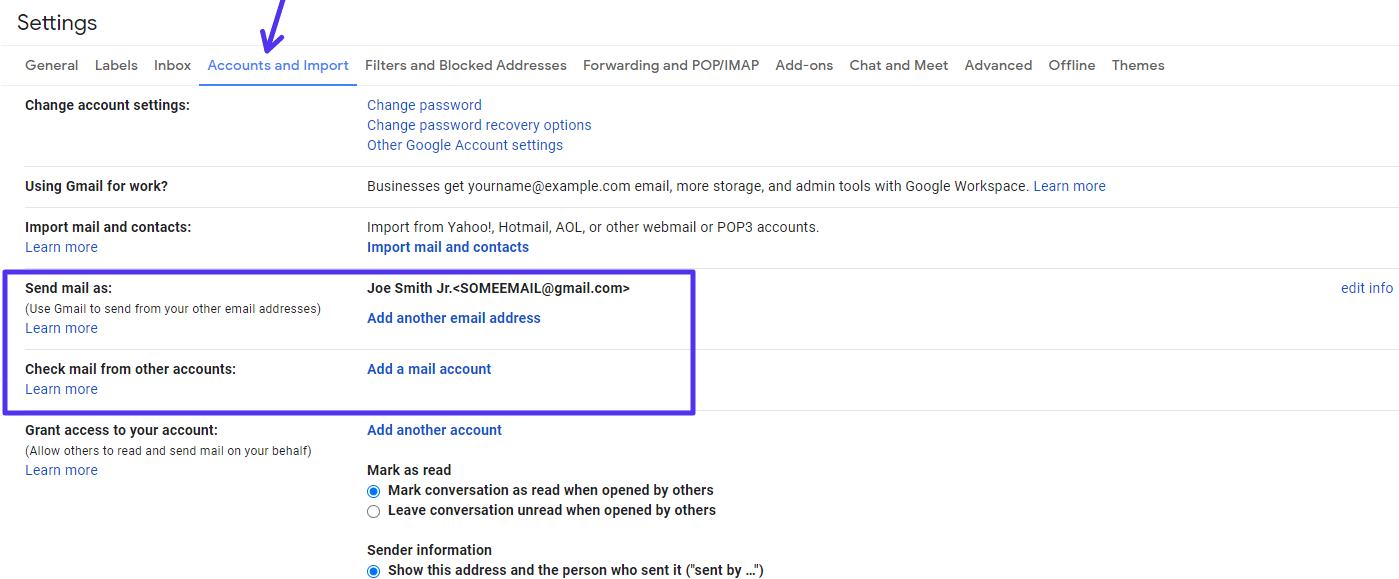
Fill out the name and email address for your other account.
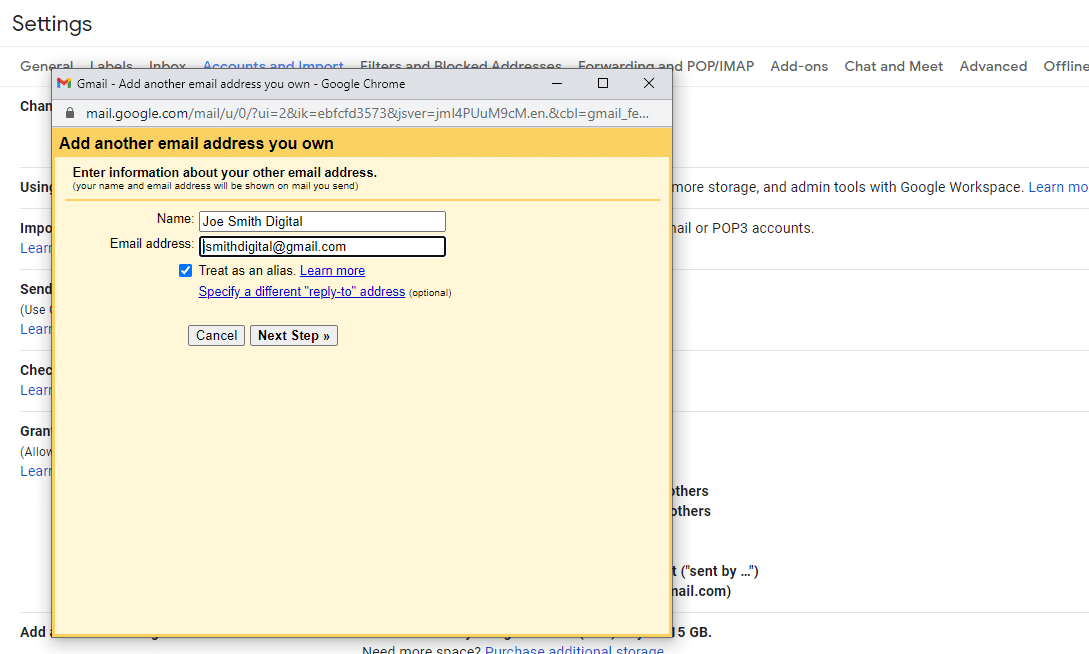
Confirm the information before you move on to the next step. Next, send the verification.
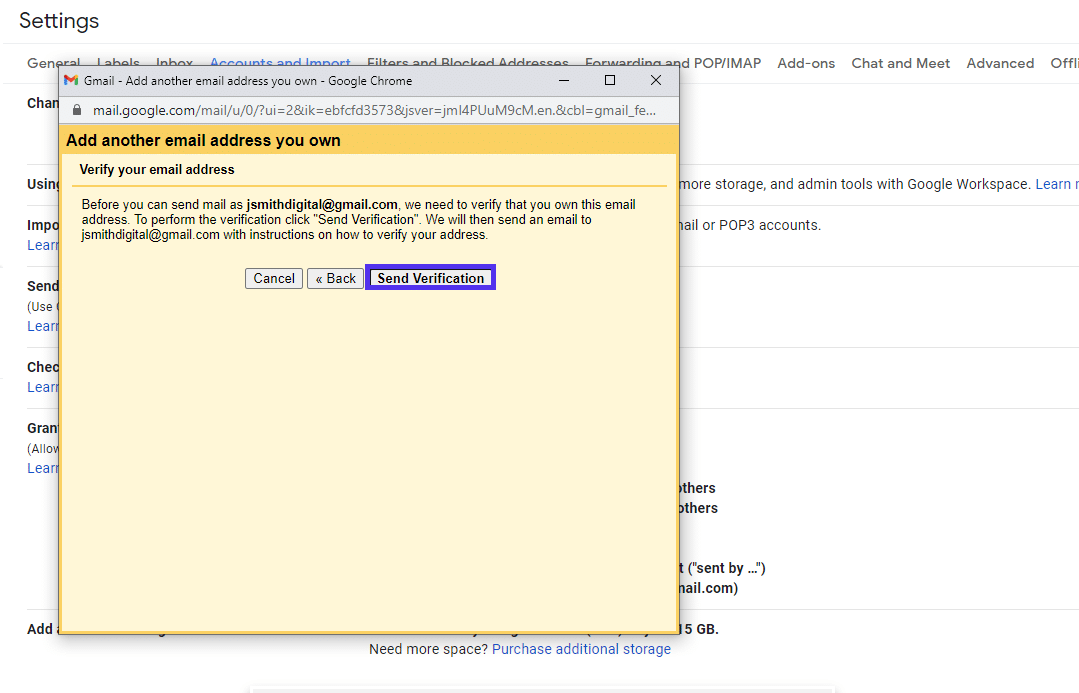
Now you need to navigate to your other Google account and confirm the request you sent from your main one.
2. Accept the Request From Your Other Accounts
To accept the request, start by switching to your second Gmail account. Click your face (or the first letter of your name) in the top right corner to open the menu.
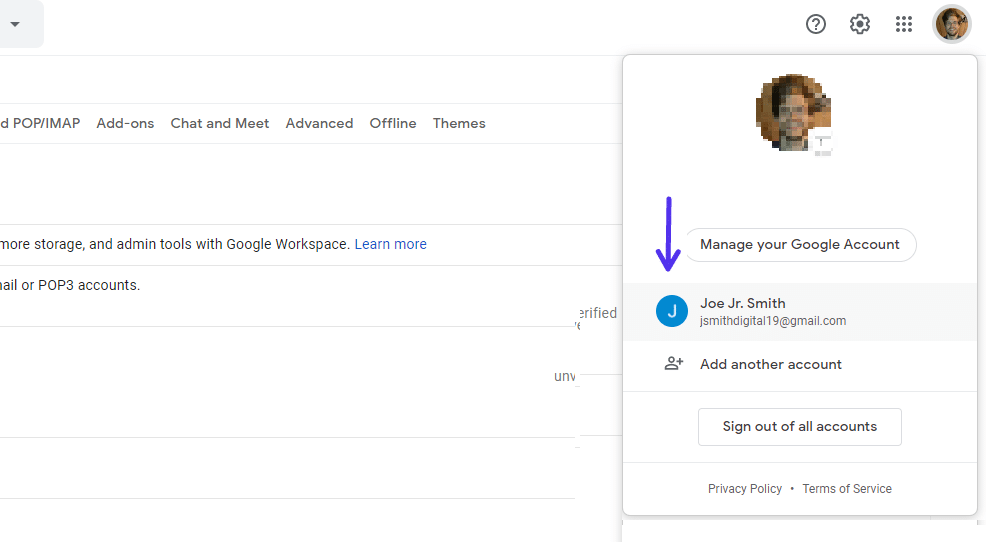
Find the confirmation email in your inbox. It should be at the very top unless you’ve changed how you sort the emails.

Open the email and click the confirmation link that starts with mail.google.com. As always, be wary of any phishing links.
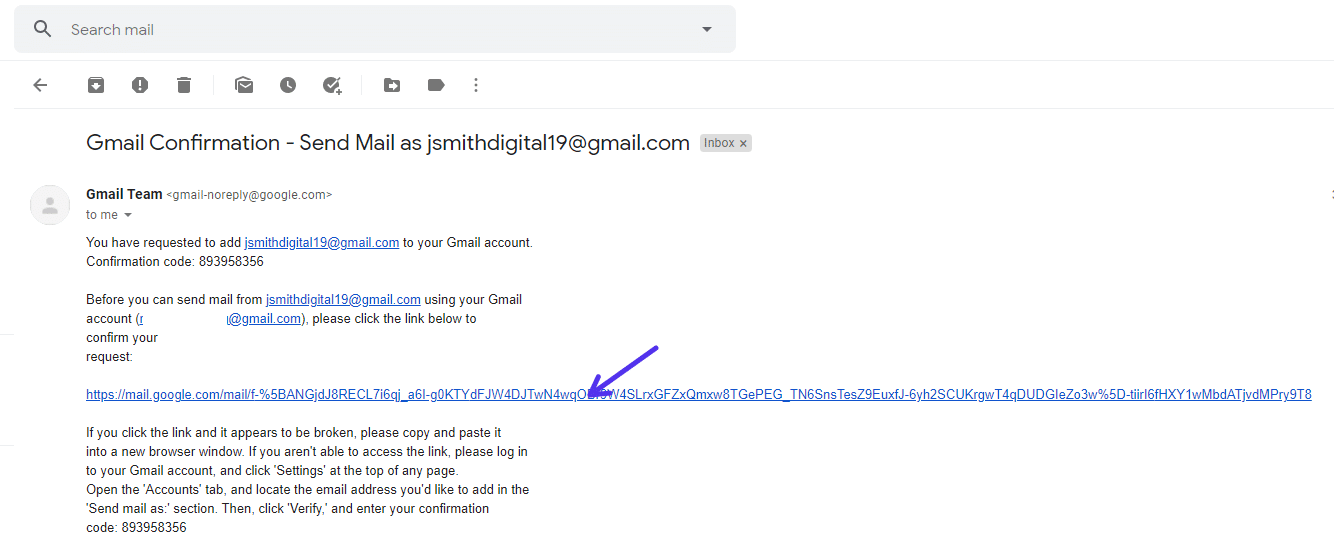
And finally, Confirm the request by clicking the button.

That’s it. You should now see a “Confirmation Success!” message.

You’re all connected.
Note: The change doesn’t just affect the browser version. It automatically works on all devices you’re logged in to, including the Gmail app on Android or iOS.
Now, all that’s left is to test that it works.
3. Test That It Works
First, click the Compose button to create a new email message. Click the “from” area to see if you can select another email besides your main one.
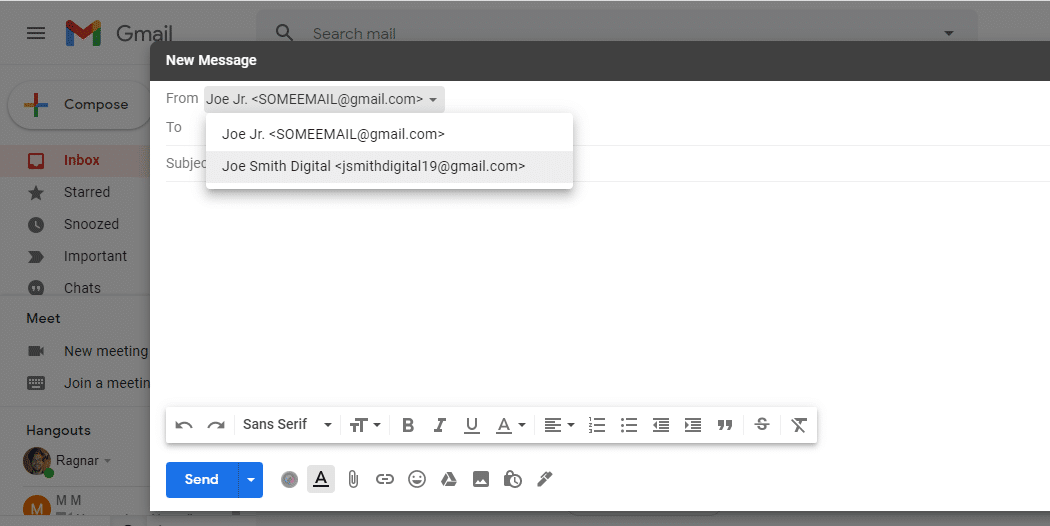
If you can see a drop-down menu of multiple email addresses, it worked. That’s the first part. Now you know you can send emails as your alias.
But how about receiving them? To test that, you need to send an email to the new address and check if it shows up.

If you can see it, that proves the connection beyond any reasonable doubt.

Success! The email shows up, even though addressed to a different account.
You’ve officially confirmed that you have multiple Gmail accounts in one inbox. And all without multiple sign-ins or any extra effort.
4. Rinse and Repeat
Rinse and repeat the process above for as many accounts as you would like. You no longer need that long list of passwords.
One Google account to rule them all!
Options for Non-Gmail Email Addresses: POP3/SMTP
Do you want even more power from a single Gmail inbox? You can also connect it with your business email using POP3 and SMTP.
Navigate back to the account settings in Gmail (for the primary account). Then click the add email in the “Check mail from other accounts” section and type in your email address to continue.
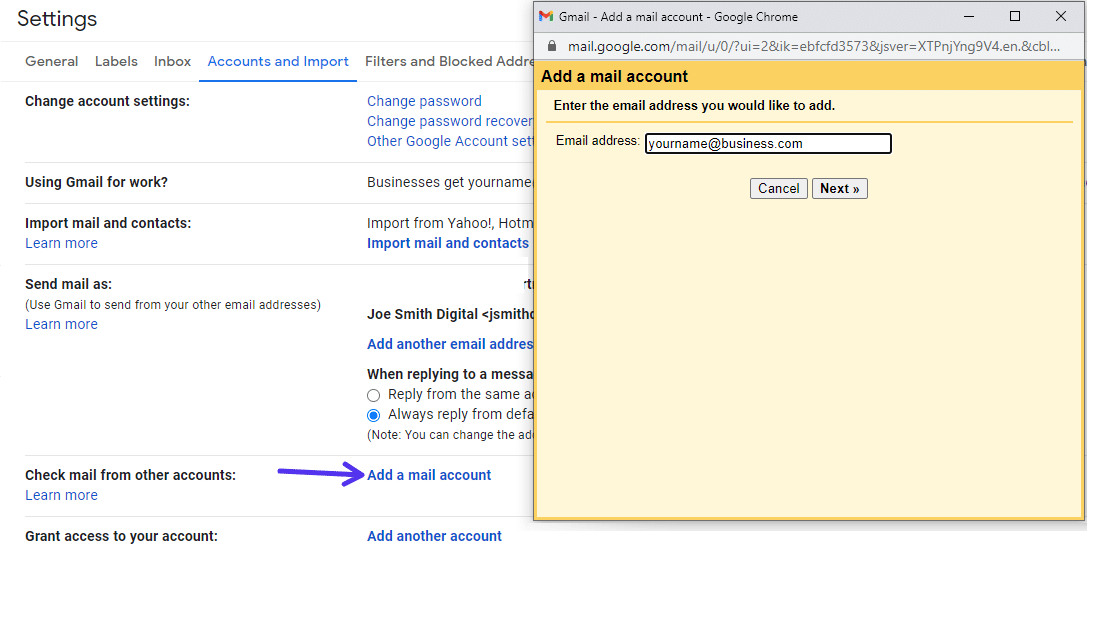
If it’s your business email address from your hosting provider, you need to connect it with POP3.
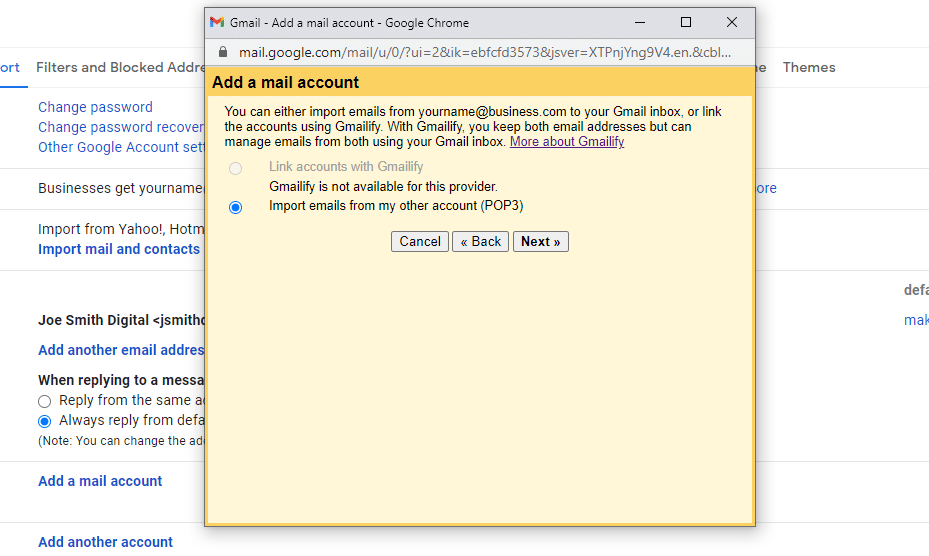
Click Next to continue to the stage where you need to fill out your POP3 information.
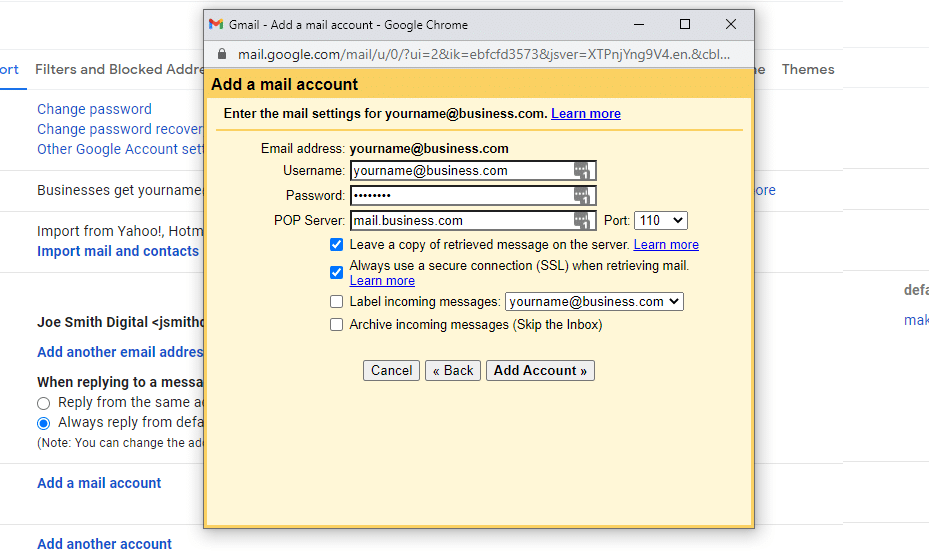
You can search for “my host POP3 server,” and you’ll find the page with the relevant information right away. You can also log in to your hosting dashboard and find the information there.
In cPanel, the information looks like this.
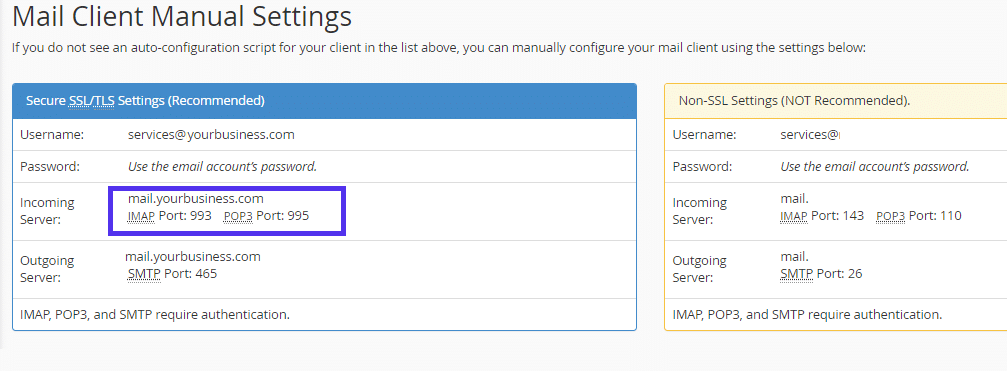
Make sure you tick the “always use a secure connection” box and choose the appropriate settings.
If you entered all the information correctly, you should see this confirmation message.
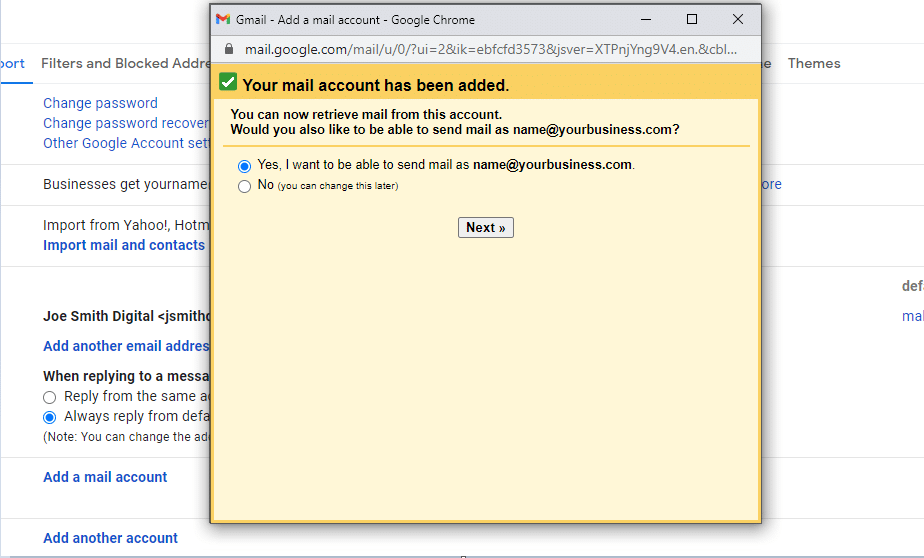
If you want to send the emails, not just receive, you need to repeat the steps, but this time for SMTP and outgoing email. If so, keep the yes checked, click the Next button.
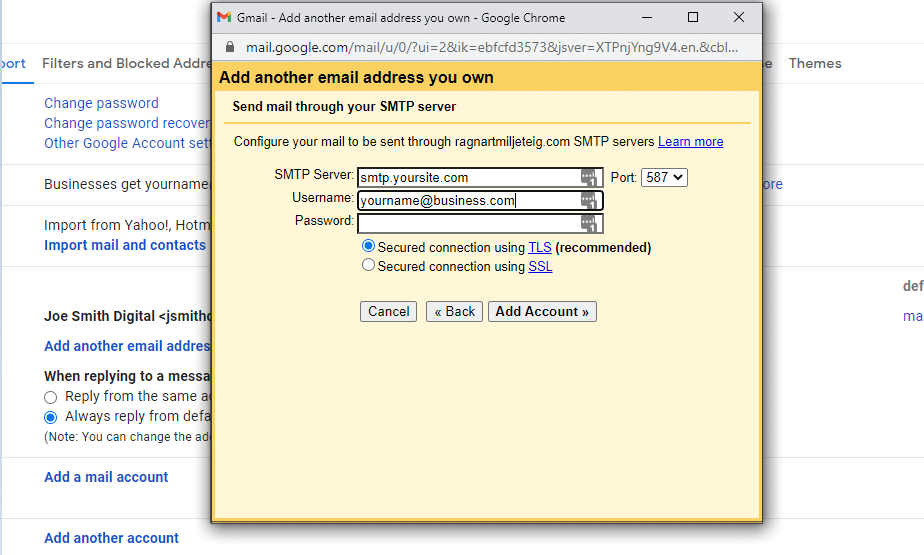
Fill out the relevant fields, choose the right port, and click Add Account.
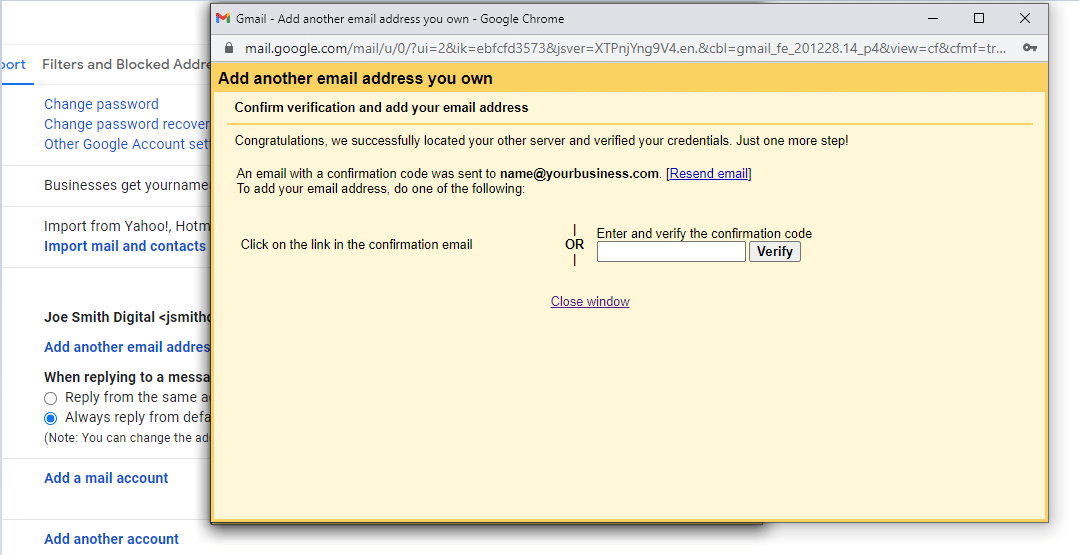
To finalize it, visit your business email inbox and click the link in the confirmation email.
How to Organize Emails From Multiple Gmail Accounts
Now that you’re receiving emails from multiple Google accounts, and maybe even your work email, the inbox is probably a lot to handle.
So now we’ll show you how to organize them into different folders to make your email inbox easier to browse.
Switch to the Multiple Inbox View
Switch to the multiple inbox view by opening the quick settings and clicking the customize link under “multiple inboxes.”
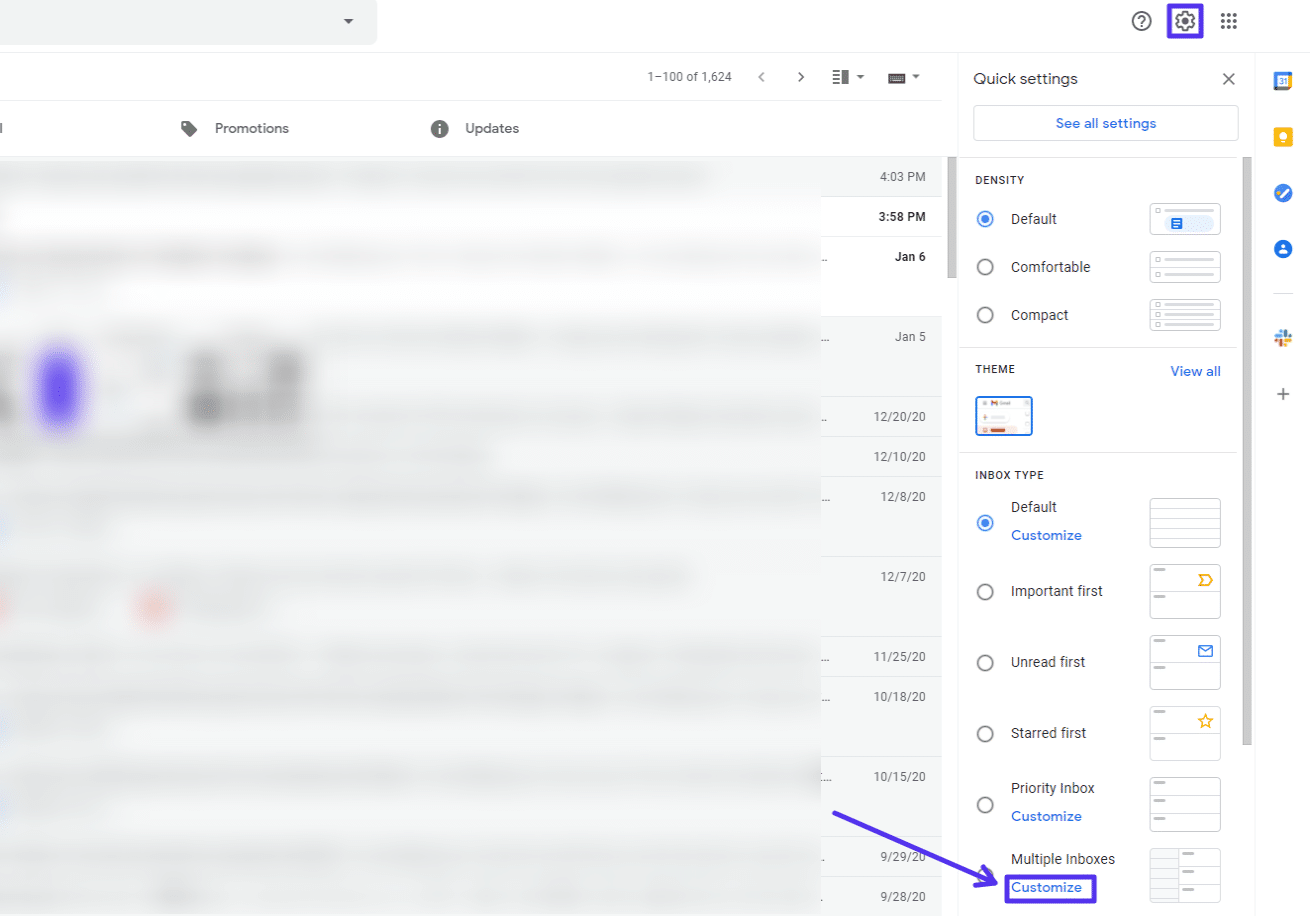
Then, you’ll want to single out email addresses by using the “to:[email protected]” filter. That will sort emails by the recipient, and you can give each new section a name (optional).
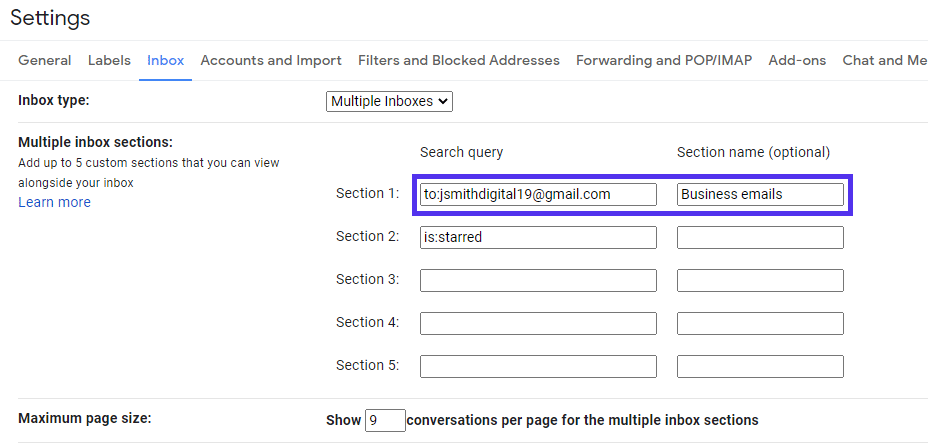
Scroll down to save the changes to the new settings.

You should immediately see the new layout.

If successful, the section you created for the email address will show your test email. It’ll populate as soon as you receive more email messages.
If you weren’t (because of a typo or other mistakes), you wouldn’t see any email messages in the section.
You can also use some of these 22 Gmail add-ons and extensions to make it easier.
Bonus: Managing Signatures for Multiple Emails in Two Easy Steps
In Gmail, adding email signatures is a breeze. Multiple Gmail accounts in one inbox doesn’t change that. You can easily assign each signature to a unique email address.
Here’s how you do it:
Head over to the general settings page, and scroll down to the signature section.
If you don’t have any, create a new one, and choose an easily identifiable name. For example, if you only use one address for business purposes, set it to “business signature.”

Then you can assign a default email address to each signature.
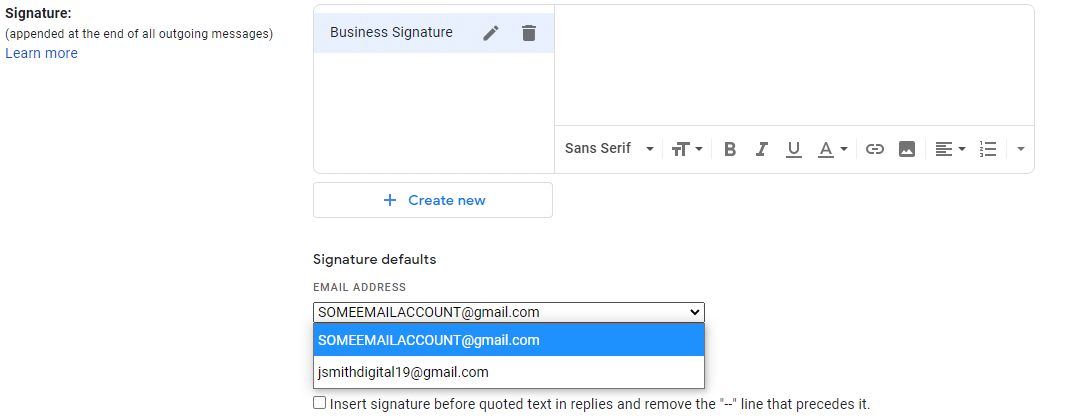
Repeat this process for all of your email addresses. It’s that simple.
Note: Make sure you set your primary signature for your default account. An inaccurate email signature doesn’t precisely convey professionalism.
Why You Need Multiple Email Accounts
There are many different use cases for integrating multiple accounts, and this solution isn’t suitable for all of them.
Suppose you want to set up a personal assistant with your emails, no problem. This method lets them scan and reply to emails without outright handing them your personal email account.
But if you want to use multiple emails for business purposes, there’s a better way.
With Google Workspace (formerly G Suite), you can easily create aliases for every user or email address in your business account.
And none of your email addresses have to be branded with “gmail.com.” Instead, you can use your domain name.
That will give potential customers a much better first impression.
Plus, it’s not like you’re just paying for the business email features. You also get access to cloud storage, file management, spreadsheets, and more. Your company may even use Google Workspace already.
For Businesses: Use Google Workspace Aliases Instead
With Google Workplace, the process is even faster. You can easily set this up for your employees rather than instruct them how to do it themselves.
Let’s jump right into it.
How to Set Up Google Workspace (Previously G Suite) Aliases
The quickest way to set up Google Workspace aliases is to assign them when you create new users.
Sign up for a new Google Workspace account and follow along with the tutorial.
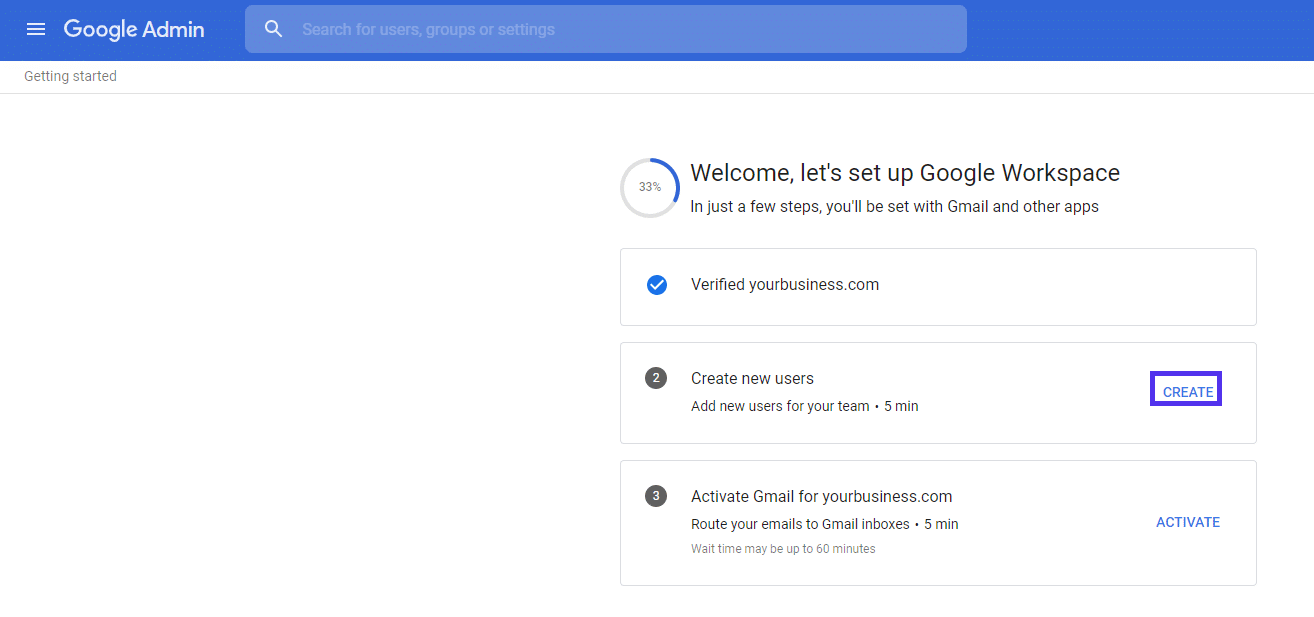
Google Workspace lets you add the email aliases by just typing them out.
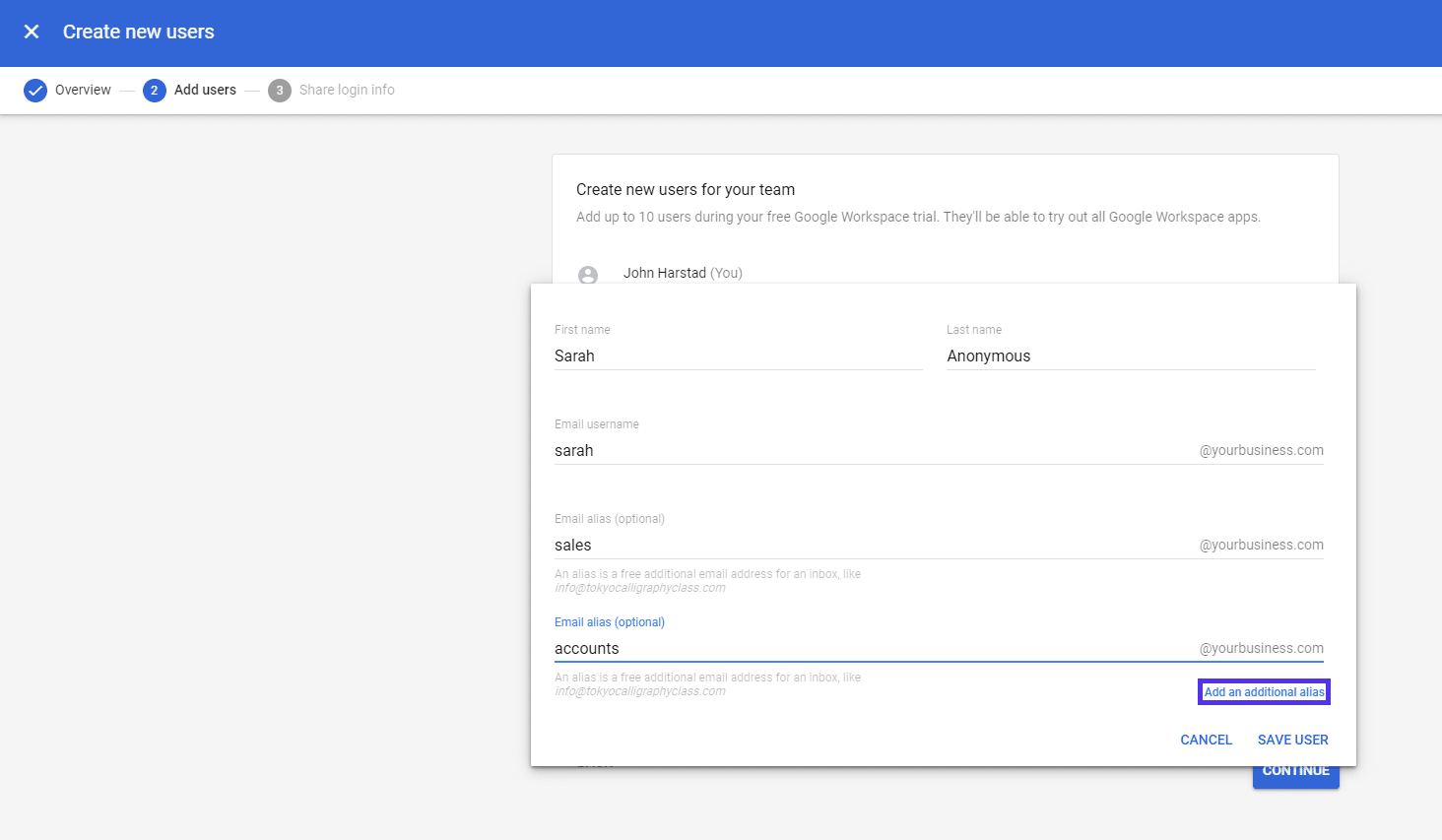
If you have existing corporate email addresses, this is the fastest way to transfer them. For more info on moving them to Google Workplace, see the section in our guide on setting up a professional email address.
If you’re already using Google Workspace, follow these steps:
Navigate to the Users section.
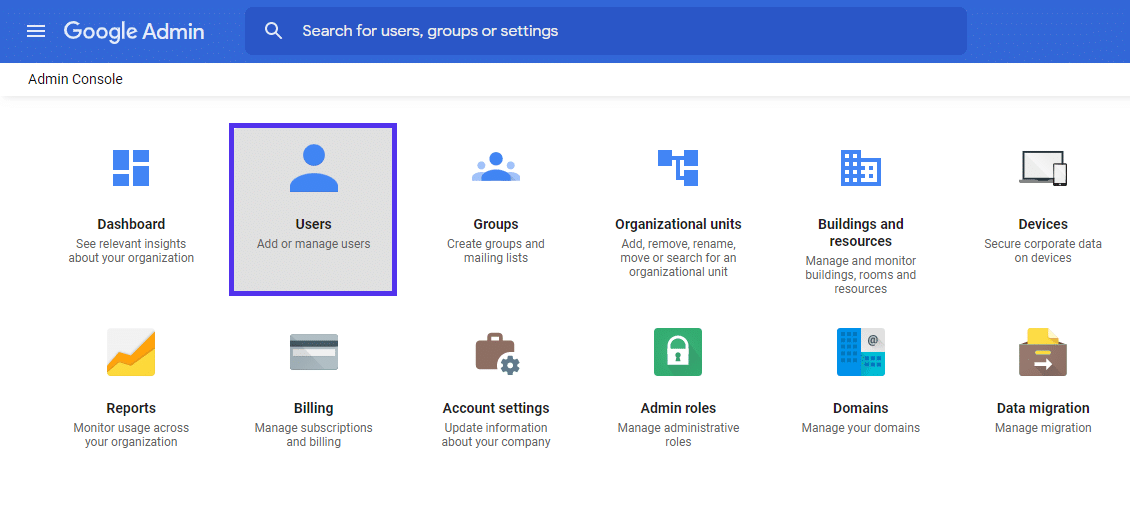
Then click the user for who you want to add alternate email addresses or aliases.
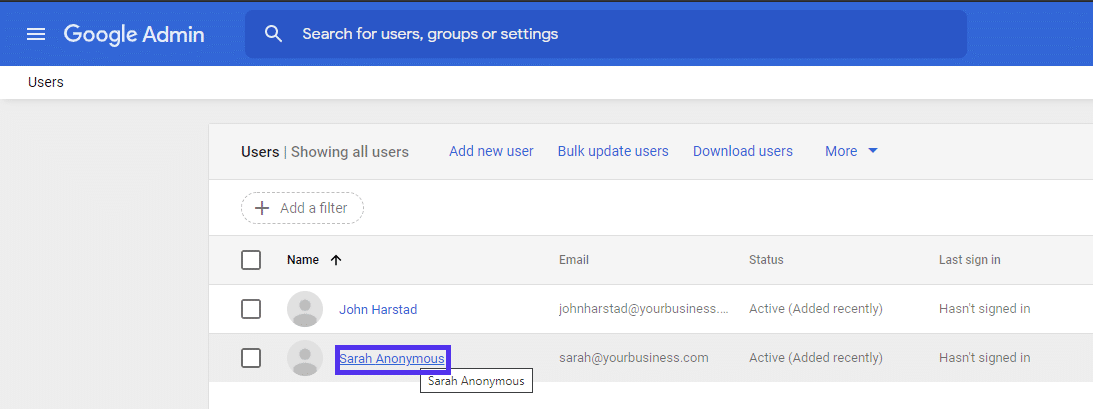
Click the User information box to expand it.
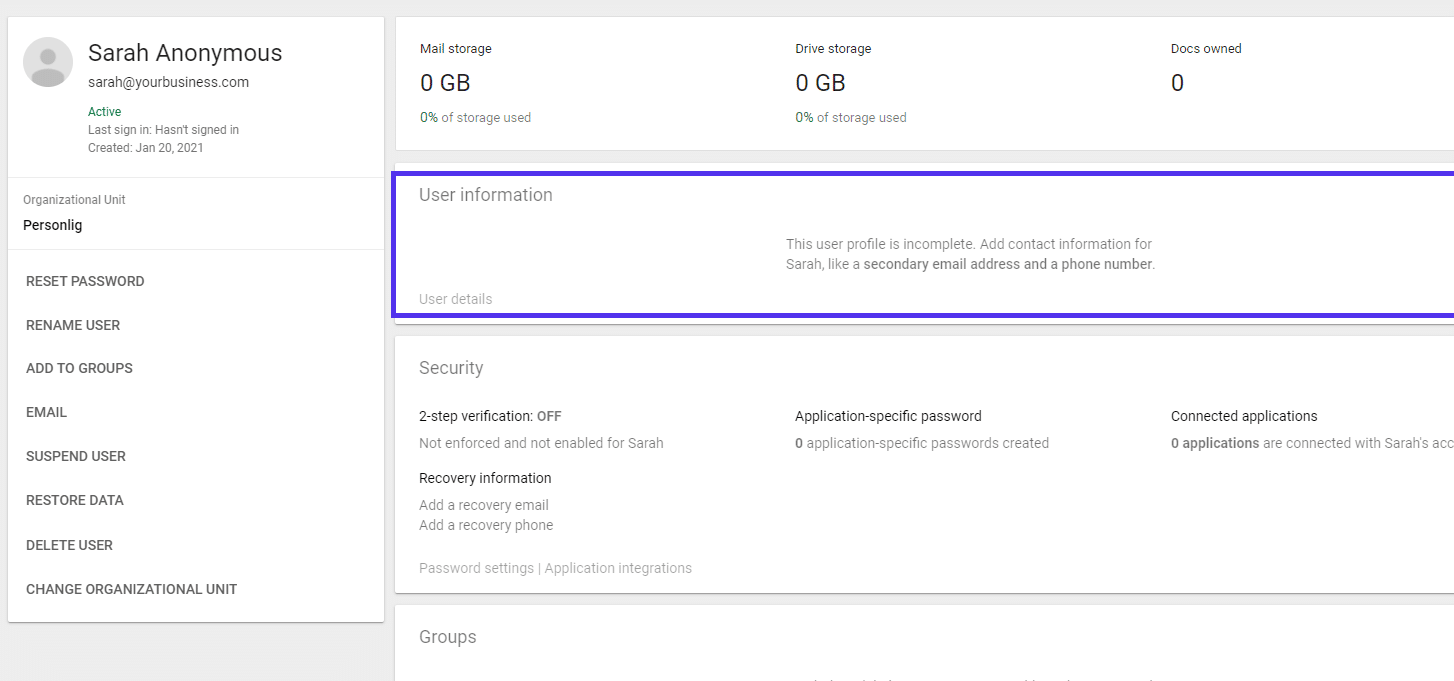
Next, expand the Alternate email addresses box.
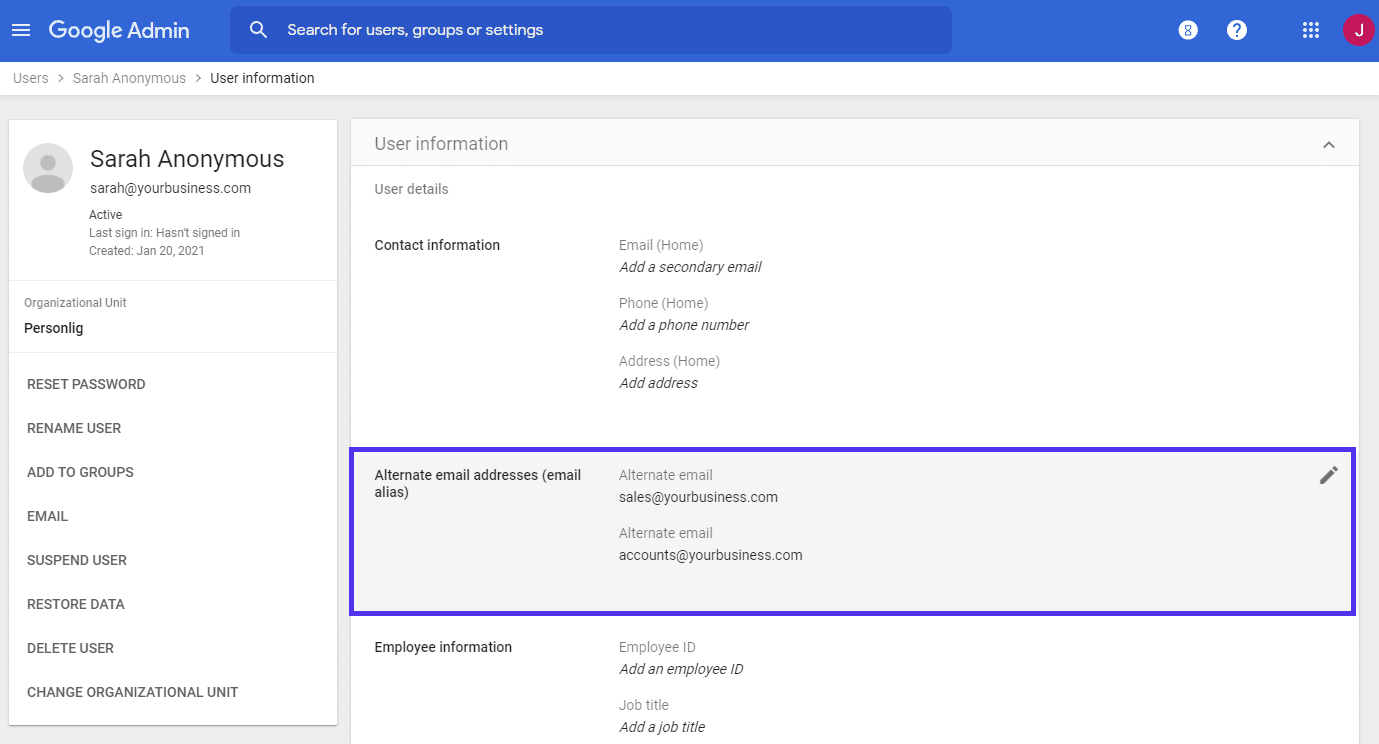
And finally, add as many email aliases as you want.
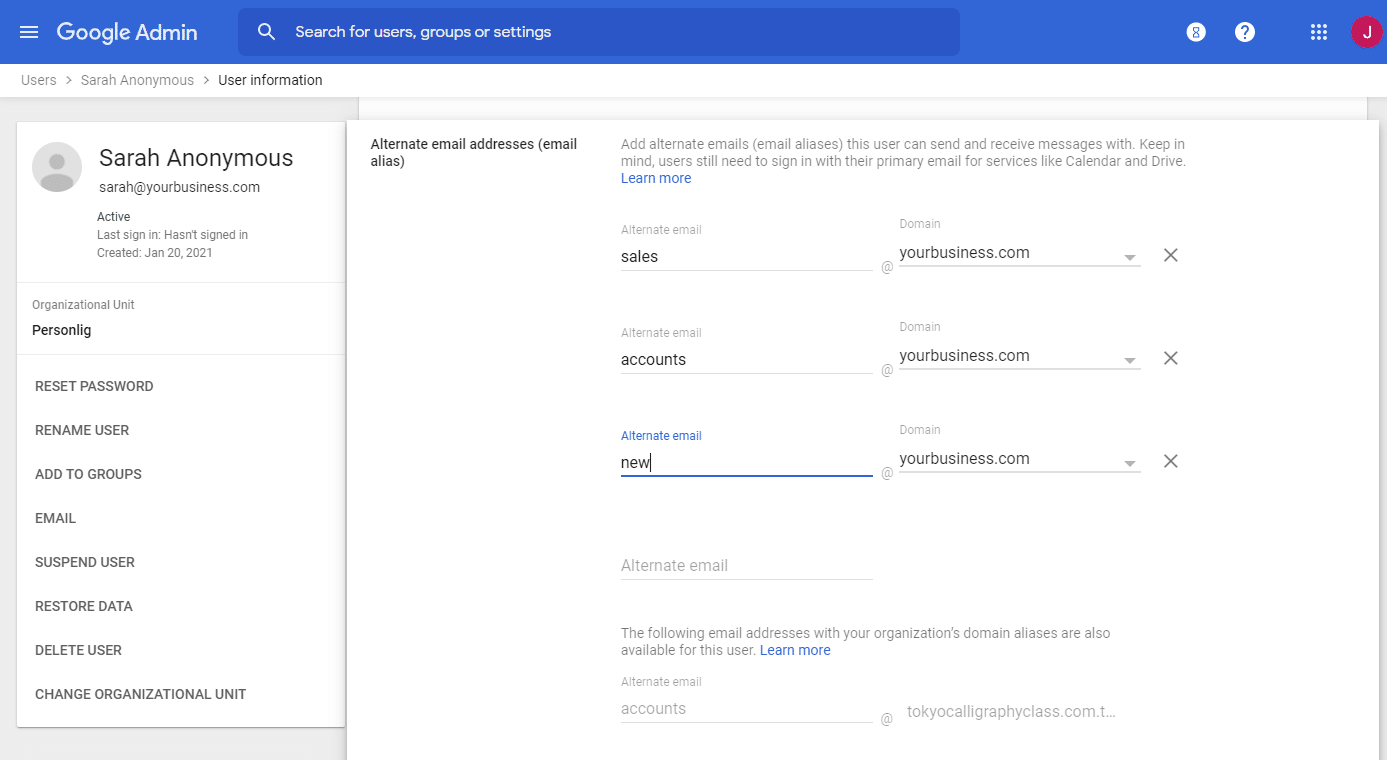
Once set up, you can precisely use these aliases from your Gmail inbox, as demonstrated in the previous section.
How Many Emails Do I Get With Google Workspace (G Suite)?
Every Google Workspace (formerly G Suite) user can have up to 30 aliases. That makes it easy to address all email addresses for administrative work to a specific person.
Even if your startup only has one assistant, you can still convey a large organization’s image. Just set up different emails to match the various departments and requests.
For example, you can have custom emails such as:
Take full advantage of that.
Summary
Whether you want to do it for business purposes or have additional email addresses for personal projects, Gmail makes it easy to manage multiple accounts.
All you need to do is to send an email confirmation and accept it. You can have it done in a few minutes. With Google Workplace, it’s even easier than that.
The hard part is to stay in control of all the emails from all those sources. To help manage your new multi-account inbox efficiently, make sure you get better with Gmail search operators… they could save you so much time!


